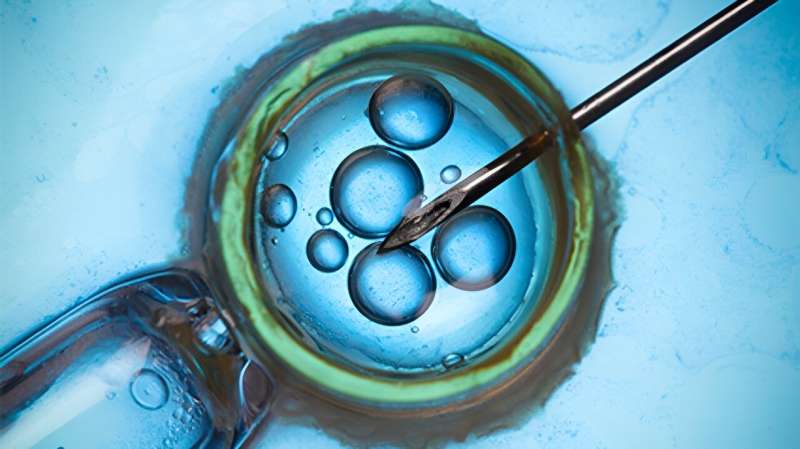This article has been reviewed according to Science X's editorial process and policies. Editors have highlighted the following attributes while ensuring the content's credibility:
fact-checked
reputable news agency
proofread
Doctors' group expands definition of 'infertility'

A new, more inclusive definition of infertility has been crafted by the American Society for Reproductive Medicine (ASRM).
While the guidance for heterosexual couples with medical reasons for being unable to conceive still exists, the definition has now been expanded to include other groups who struggle to build a family, including same sex-couples and single people.
"We made it explicit that lack of access to the kind of gametes you need is a condition deserving of treatment," Sean Tipton, ASRM's chief advocacy and policy officer, told CNN.
"That is, the reason you may need medical assistance to build your family, it can be because your fallopian tubes don't work, or it could be because your sperm don't swim right. But it could also be because you're single, or because you are in a relationship with a person who doesn't have the kind of gametes you need. Those are legitimate causes of infertility, and they need to be treated accordingly," Tipton said.
"It is our hope that this definition removes one of the excuses that insurance companies have attempted to use to deny patients coverage for the medical care they need to have children," he added.
For heterosexual couples, the definition of infertility continues to be trying for a year but not conceiving for women younger than 35 and for six months for those aged 35 and older, Dr. Rachel Ashby, director of the Donor Egg and Gestational Carrier Program at Brigham and Women's Hospital in Boston, told CNN.
On one hand, "infertility is a disease state. It's a condition that needs treatment," Ashby said. "Then the other thing that stands out is the idea that for many people, they can't get pregnant without the use of donor gametes. If I'm a single woman, if I'm in a same-sex relationship as a woman, or if I'm two men, I need donor gametes. This is another tenet of infertility that's inclusive of the LGBT community."
The new definition says that infertility is the "inability to achieve a successful pregnancy based on a patient's medical, sexual and reproductive history, age, physical findings, diagnostic testing," or "the need for medical intervention," such as donor eggs or sperm.
"This revised definition reflects that all persons, regardless of marital status, sexual orientation or gender identity, deserve equal access to reproductive medicine. This inclusive definition helps ensure that anyone seeking to build a family has equitable access to infertility treatment and care," ASRM CEO Dr. Jared Robins said in a society news release.
The ASRM looks forward to "working with our members, policymakers and others to normalize this definition," Robins added.
The new ASRM definition is a positive step, Dr. Aimee Eyvazzadeh, a San Francisco-based reproductive endocrinologist, told CNN.
"By adopting a more inclusive and accurate definition of infertility, the medical community can better serve and support those in need of reproductive assistance. It not only promotes transparency, but also helps reduce the stigma often associated with fertility problems," Eyvazzadeh said.
"There are doctors who feel compelled to tell patients that insurance won't cover a service because they don't meet a 'definition,' even if it's unrelated to insurance coverage," Eyvazzadeh added. "The definition means a lot to fertility doctors and patients, and I'm thrilled to see this change."
More information: The U.S. Centers for Disease Control and Prevention has more on infertility.
Copyright © 2023 HealthDay. All rights reserved.




















